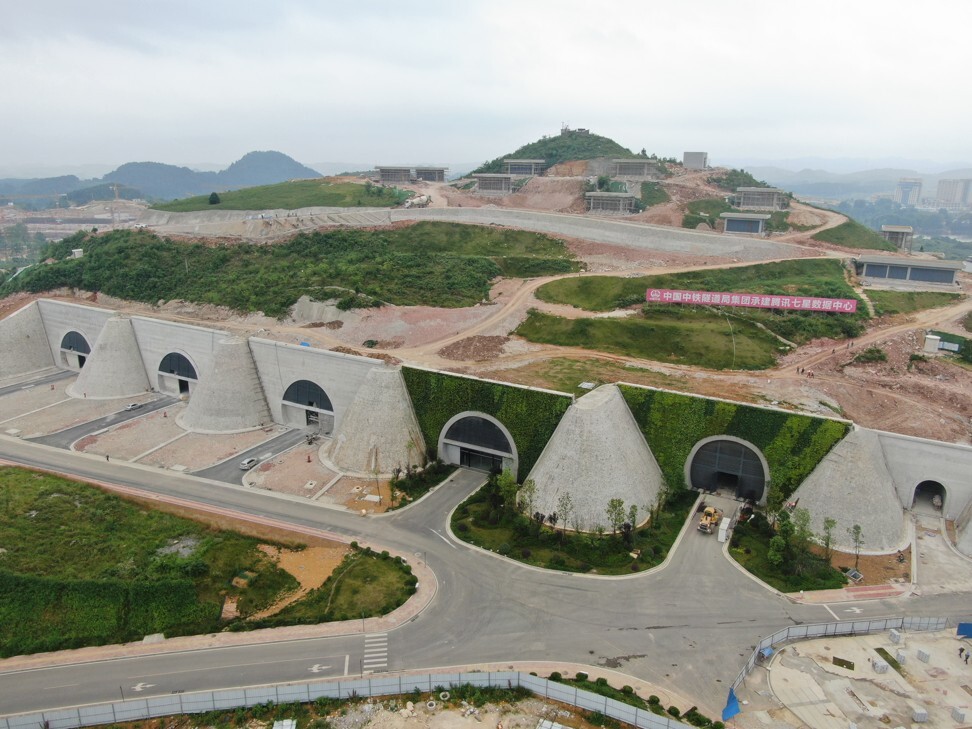
China pushes nationwide buildout of new ‘big data’ centres to speed up digital transformation of industries
- When the new infrastructure is in place, China will be able to develop an ‘industrial data trading market’
- The initiative comes amid Beijing’s efforts to accelerate the roll-out of digital infrastructure across the country
China is doubling down on the digital transformation of its economy with a plan to build “industrial big data” centres nationwide, enabling massive amounts of information – mostly production data – to be used for developing more efficient industries.
That strategy was unveiled in a directive on Wednesday by the Ministry of Industry and Information Technology (MIIT), which called on local authorities in 23 provinces, five autonomous regions and four municipalities to support the establishment of these new big data centres, which will help bolster efforts to upgrade the country’s manufacturing sector.
The MIIT said these new facilities would also support the transformation of other sectors, including those involved in raw materials, consumer products and digital information. It also encouraged enterprises in these sectors to move past “technical barriers”, enabling the processing of data from various sources.
When the new infrastructure is in place, China will be able to “cultivate an industrial data trading market”, the ministry said, adding that pilot programmes for “data assets trading” will be carried out. It did not provide a timetable for the roll-out of facilities, data trading or the amount of funding these local governments would require for the initiative.
The ministry did not immediately respond to faxed questions for comment on Friday.

The industrial big data centre programme comes amid Beijing’s efforts to accelerate the roll-out of digital infrastructure across China, helping advance the capabilities of traditional industries and mitigate the economic fallout caused by the coronavirus outbreak.
The province is now home to massive data centres of major domestic and multinational companies, including Tencent Holdings, Foxconn Technology Group, Apple, China Mobile, China Unicom and China Telecom.
Traditional data centres are secure facilities that house large-capacity servers and data storage systems, and are equipped with multiple power sources and high-bandwidth internet connections. These facilities are used by enterprises to remotely store large amounts of data, manage their business applications and host cloud computing operations. Cloud services enable companies to buy, lease or sell software and other digital resources online on demand, just like electricity from a power grid.
China’s Shenzhen is using big data to become a smart ‘socialist model city’
The MIIT directive sharpens industries’ focus on the processing of industrial big data, which represents massive volumes of production information analysed to reveal patterns and trends or train artificial intelligence (AI). China, with a population nearing 1.4 billion people, already offers plenty of consumer data to gather and study, without the privacy and security restrictions found in other countries.
“Industrial big data plays an important role in manufacturing’s digital transformation,” said Zhang Lanying, senior manufacturing research manager at IDC. “Better data collection and extraction could make industrial data more valuable to use.”
Shanghai’s free-trade zone will accelerate digital infrastructure push with 5G, IoT and AI tech
As part of its directive, the MIIT also called on faster deployment of the industrial internet, a national strategy that requires the cooperation of different organisations.
The industrial internet involves the broader adoption of advanced consumer and industrial applications that take advantage of digital infrastructure, including next-generation wireless networks, big data, AI and the Internet of Things for enterprise purposes. This is in line with China’s wider ambitions to lift its industries up the value chain and better compete globally in emerging technologies, dubbed as the Fourth Industrial Revolution.
The China Centre for Information Industry Development, a think tank under MIIT, described the industrial internet in a report as becoming the “nerve centre” to support data collection, sharing and mining across industries.

